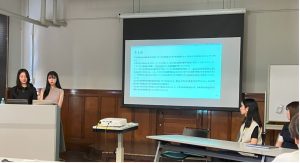Location Sharing Among Youth: A Comparative Study Across Cities
Over the past few decades, the rapid advancement of GPS technology has made location information one of the central features of social media. Youth utilize location data for various purposes, including maintaining friendships, ensuring safety, and creating opportunities for new encounters. Check-ins and real-time location sharing have become everyday practices.
While these features offer convenience, sharing location data also raises concerns about privacy and safety. Numerous previous studies have explored privacy issues, but many focus on individual psychological processes or the technical characteristics of location-sharing technologies. There has been relatively little attention given to the broader social and cultural contexts.
However, some prior research suggests that cultural factors may influence location-sharing attitudes. For example, in Western contexts, people tend to be more cautious about disclosing personal information, whereas different tendencies have been reported among East Asian populations.
Against this backdrop, this research project, conducted by the Fujita Yuiko Laboratory, will use qualitative methods to compare youth’s use of location data across different cities, with a primary focus on Tokyo. As a global megacity, Tokyo is both technologically advanced and a major tourist destination, yet it remains a place where people can walk safely at any time. By examining how these broad social factors influence location-sharing practices in different regions, this study aims to offer new directions for future research on location data.
<Presentation at an academic conference>

Research activities for the 2024 academic year: https://baiforum.jp/en/report/re115/